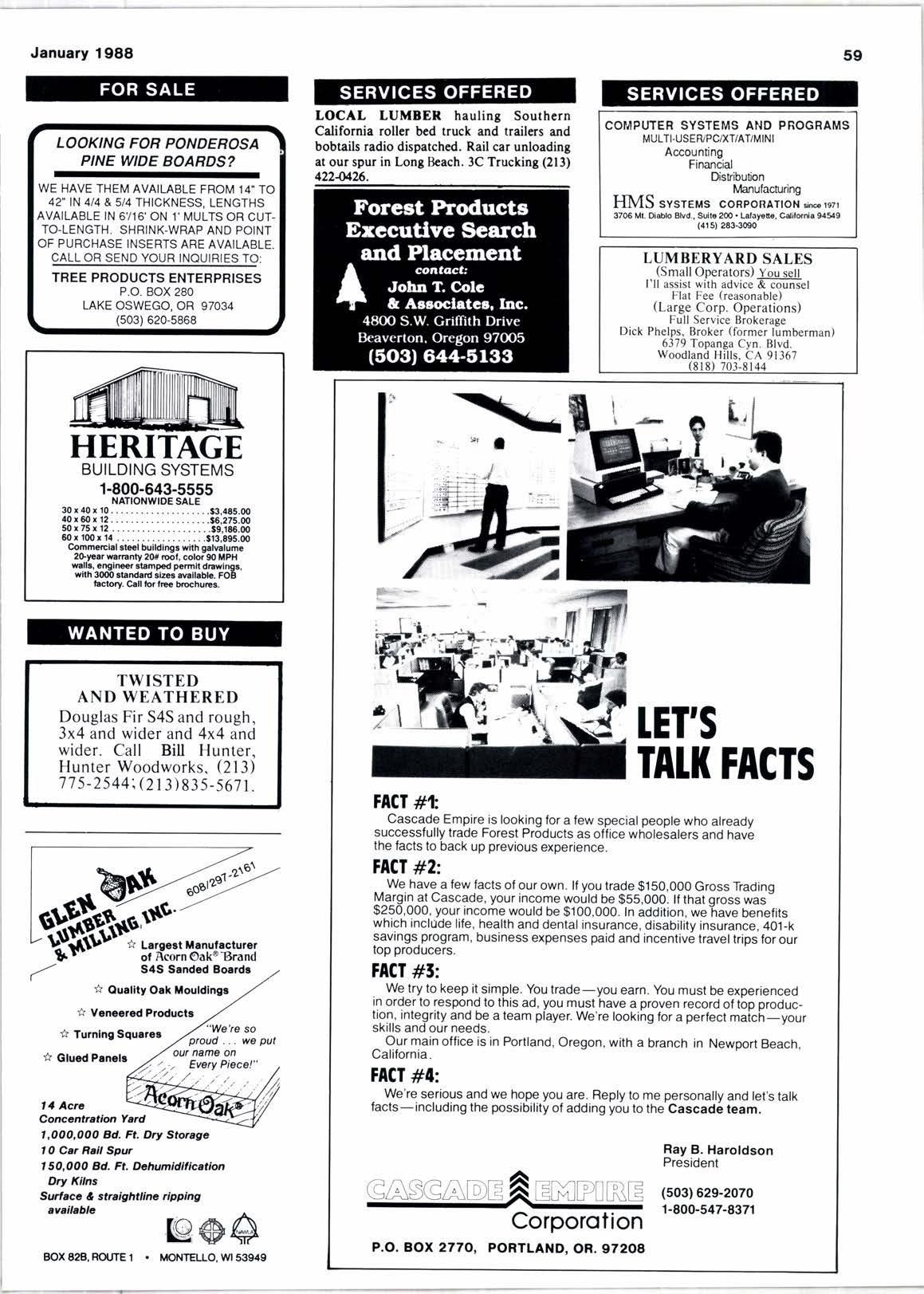
2 minute read
Rate negotiation can result in undercharge bills
By Richard L. Bredeman Senior Traffic Consultant B. R. Garcia Traffic Service Walnut Creek, Ca.
THE relaxation of regulation since the passage of the
IMotor Carrier Act of 1980 has given shippers new opportunities to negotiate both service and pricing.
It has also produced some problems. One of the most vexing is when a shipper, who negotiated a discount from a motor carrier previously, receives undercharge freight bills denying the discount. Typically, these discounts are substantial, often as high as 500/0, and the bills may cover shipments which moved several years earlier. These bills are usually from an auditing firm, representing freight shipped via a carrier which subsequently became bankrupt.
In a bankruptcy proceeding, the court appoints a trustee, who often selects a firm which specializes in this field, to examine the freight bills for possible undercharges. The auditor's financial success depends on collecting the maximum amount of additional freight charges.
Discounts are particularly susceptible to undercharge claims. Auditors have relied on a principle known as the "filed rate doctrine," which has been upheld by the Interstate Commerce Commission and the United States Supreme Court since 1915. This doctrine holds that a common carrier is required to collect, and the shipper is required to pay, the full lawful charge shown in the applicable freight rate tariff, regardless of any conflicting information or understanding between the parties.
In their zeal to obtain traffic, carriers in many cases promised substantial discounts to shippers, while failing, inadvertently or otherwise, to publish the discount provisions in a tariff and hle it with the ICC.
Another frequent basis for undercharge claims concerns failure to comply with technical documentation requirements, such as specified annotations to be made on the bills of lading. The commission in recent years has held, under certain conditions, that omission of a notation from the bill of lading, if it has no effect on the carrier's operations, is not sufficient reason for denial of the rate.
As a result of this growing problem, the National Industrial Traffic League, on February 26, 1985, filed a petition with the Interstate Commerce Commission, asking them to initiate a rule-making proceeding to address the matter.
Shippers felt that, with "deregulation," they could depend on assurances, written or verbal, from the carriers that the negotiated rates or discounts were legally hled tariff provisions. Shippers told the commission they should not be penalized for administrative failures of the trucking companies.
The commission, in due course, agreed with the shippers, and, effective November 29,1986, modified their long-standing policy of strict adherence to filed tariff rates.
The key to the commission's authority to make this change is the distinction between a "legally filed rate" and a "lawful rate." Under the new policy, the commission will consider a challenge to the legally filed rate, when based on a showing that collection of the legally filed rate would be unlawful. Under the Interstate Commerce Act, the commission may find collection of a legally filed rate to be unlawful, when it is shown to result from an unreasonable practice of the carrier in violation of Section 107 of the act.
Story at a Glance
What to do if you receive "balance due" freight bills for undercharges basis for claims ways to avoid problems, what action you can take.
To support the contention that collection of the legally filed tariff rate would be unlawful, shippers must show convincing proofofa negotiated rate or discount' In exceptional circumstances, properly supported testimony' corroborated by other evidence, may convince the commission. However. written documentation, such as a letter from the carrier, would be far more effective.
What should you do if you receive "balance due" bills from carriers or their assignees? First, verify the carrier's or auditor's claim from the standpoint of actual tariffprovisions. Ifyou hnd the claim to be correct in that respect, and you know a different rate or discount was negotiated, look for proof. If you have such proof, decline payment in writing, stating your reasons. In your reply, refer to the Commission's policy statement in "Ex Parte No. MC-177, National Industrial Transportation LeagueNegotiated Motor Common Carrier Rates." The auditor may try to minimize the importance of this proceeding,











